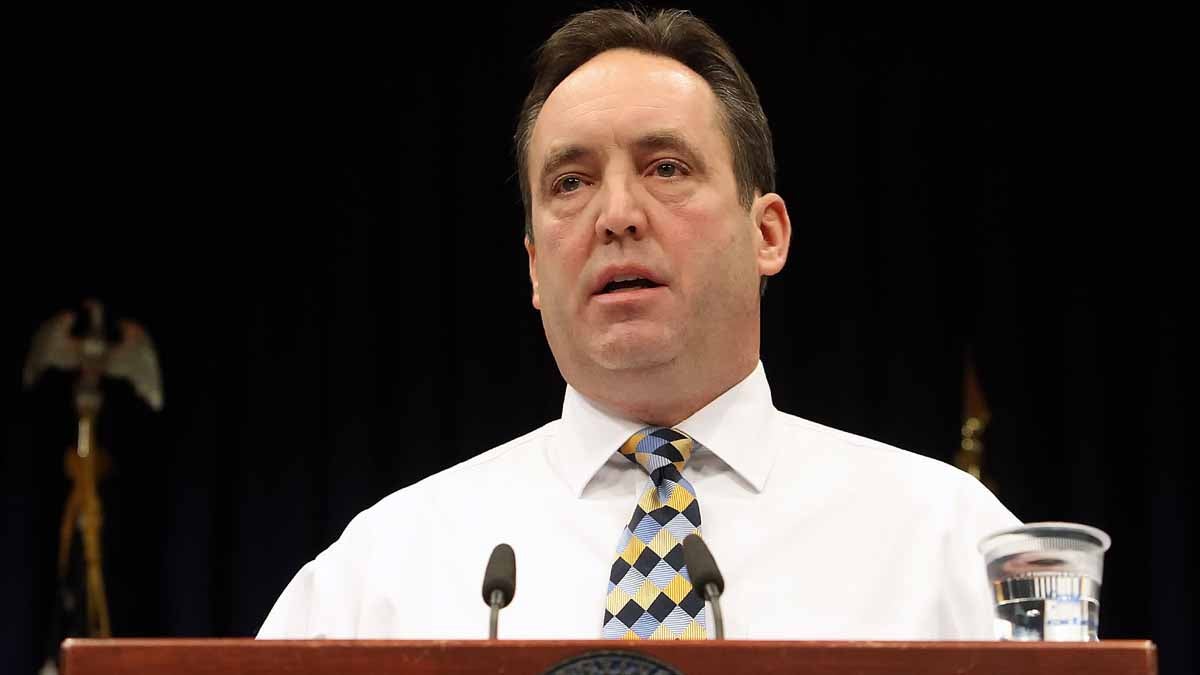Analysis: GOP pension plan would save Pa. billions, but cut benefits

Pennsylvania Senate Majority Leader Jake Corman says the GOP's pension bill's passage will start a negotiation with the House and the Wolf administration. (AP file photo)
Proposed changes to Pennsylvania’s retirement systems would save the commonwealth $18 billion over 30 years, according to a fiscal analysis of the plan being fast-tracked in the state Senate.
The state’s in-house adviser on all things pension-related said the immediate and long-term savings come largely from cutting benefits for current and future state and school employees.
“That’s how you save money in pensions,” said Jim McAneny, director of the Public Employee Retirement Commission. “You don’t pay out as much.”
Most of the immediate savings, McAneny added, would come from reducing benefits for current employees.
The changes would take a nearly $8 billion bite out of the current $53 billion unfunded obligation carried by the two state retirement systems. The Senate bill would refinance the liability over 30 years, shifting the debt into the future. Refinancing state pension obligations is a familiar move – the Legislature voted to do it as recently as 2010.
McAneny also noted that it’s not clear the proposed pension changes are legal. Cutting current employees’ retirement benefits appears to breach their contract with the state or school system — something the courts have ruled is prohibited under the state constitution.
“I don’t think there’s much question that this will end up in the courts to be resolved, which is what’s happened in the past whenever there’s been a change like this,” McAneny said.
The proposed legislation is poised for a final vote Wednesday in the Senate, five days after it was introduced.
The state’s actuary wasn’t able to do a complete analysis of the measure due to time constraints, leading Democrats to protest that the proposal is being rushed.
“I think that this process of moving a bill of such consequence — and of such complexity and so voluminous — at the pace that we’re moving it is irresponsible,” said Sen. John Blake, D-Lackawanna. “And it’s actually quite an insult, I think, to the taxpayers.”
But Republican backers point out that the broad strokes of what’s in the measure have been debated for years. Senate Majority Leader Jake Corman said the bill’s passage will start a negotiation with the House and the Wolf administration.
“This is part of the process,” said Corman. “It’s not going to the governor’s desk, it’s going to the House.”
WHYY is your source for fact-based, in-depth journalism and information. As a nonprofit organization, we rely on financial support from readers like you. Please give today.

